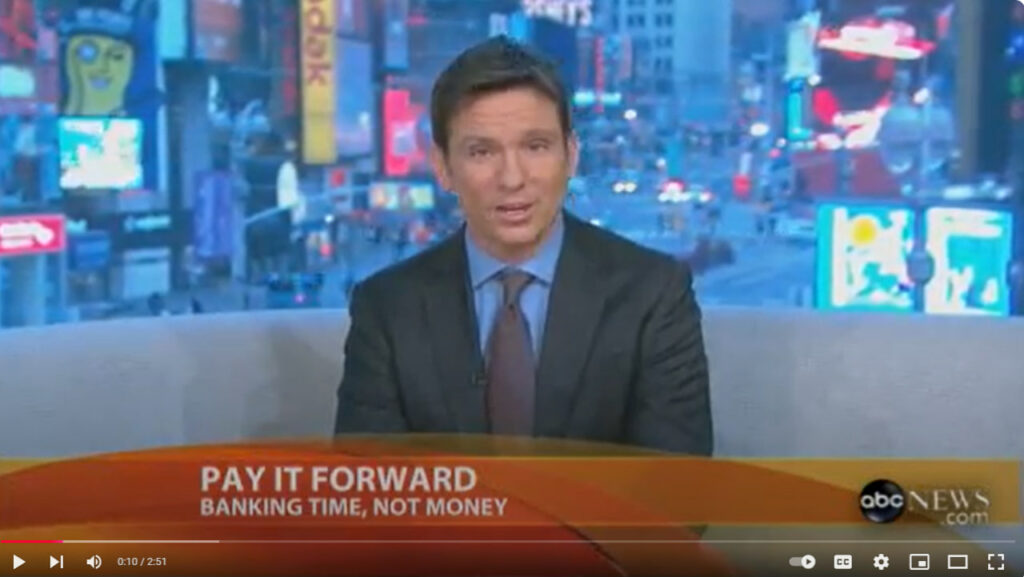With more than 600,000 Americans searching for jobs, many are rethinking how they define work. Instead of working for money, a national network of people is helping each other by sharing time and talents. ABC’s Jeremy Hubbard reports on how time banks are helping communities get back to work.
Projects like scraping paint, fixing sinks, and washing windows are costly—expenses 61-year-old Judy Capel can no longer afford. “Right now, they just wouldn’t get repaired. I simply can’t afford it,” says Judy, who retired from Citibank and lost $800,000 of her savings when the company’s stock value plummeted. “Is this how you imagined your retirement?” she’s asked. “No, it’s not. I had money set aside for the second half of my retirement, but that money is gone.”
So how will Judy cover the handyman’s bill? By turning to the time bank. The concept of a time bank is simple: everyone has something valuable to offer, and everyone has something they need in return. Here’s how it works: no branches, no tellers, no cash. Instead, people exchange skills. For example, if you need an hour of help painting a fence, time bank organizers connect you with someone who can help. In exchange, you spend an hour helping someone else, earning “time dollars.” The more you help, the more you earn, which you can use when you need help.
For Judy, this means making a withdrawal by getting her apartment repairs done. Now, she’ll make a deposit—not in money, but by giving back. Judy “pays it forward” by offering free math lessons to 8-year-old Caro, whose mother, Julia, couldn’t otherwise afford tutoring. “It helps my mom a lot because she can save money,” says Caro. Julia adds, “When someone helps you for free, genuinely and willingly, it’s so meaningful. You feel their kindness and love.”
This circle of giving is resonating with many. As millions of Americans count every penny, the idea of time banking is growing. About 60 time banks have emerged nationwide, with approximately 11,000 people exchanging time instead of money. “In a sense, it’s paying it forward,” explains one participant. “You give something, you get something. It’s a continuous cycle of generosity.”
It’s a system built on goodwill—a “bank” that will never need a bailout.
For Good Morning America, Jeremy Hubbard, ABC News, New York.
